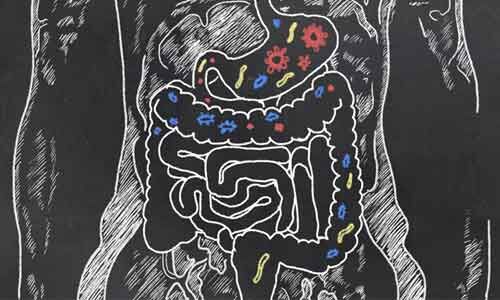- Home
- Medical news & Guidelines
- Anesthesiology
- Cardiology and CTVS
- Critical Care
- Dentistry
- Dermatology
- Diabetes and Endocrinology
- ENT
- Gastroenterology
- Medicine
- Nephrology
- Neurology
- Obstretics-Gynaecology
- Oncology
- Ophthalmology
- Orthopaedics
- Pediatrics-Neonatology
- Psychiatry
- Pulmonology
- Radiology
- Surgery
- Urology
- Laboratory Medicine
- Diet
- Nursing
- Paramedical
- Physiotherapy
- Health news
- Fact Check
- Bone Health Fact Check
- Brain Health Fact Check
- Cancer Related Fact Check
- Child Care Fact Check
- Dental and oral health fact check
- Diabetes and metabolic health fact check
- Diet and Nutrition Fact Check
- Eye and ENT Care Fact Check
- Fitness fact check
- Gut health fact check
- Heart health fact check
- Kidney health fact check
- Medical education fact check
- Men's health fact check
- Respiratory fact check
- Skin and hair care fact check
- Vaccine and Immunization fact check
- Women's health fact check
- AYUSH
- State News
- Andaman and Nicobar Islands
- Andhra Pradesh
- Arunachal Pradesh
- Assam
- Bihar
- Chandigarh
- Chattisgarh
- Dadra and Nagar Haveli
- Daman and Diu
- Delhi
- Goa
- Gujarat
- Haryana
- Himachal Pradesh
- Jammu & Kashmir
- Jharkhand
- Karnataka
- Kerala
- Ladakh
- Lakshadweep
- Madhya Pradesh
- Maharashtra
- Manipur
- Meghalaya
- Mizoram
- Nagaland
- Odisha
- Puducherry
- Punjab
- Rajasthan
- Sikkim
- Tamil Nadu
- Telangana
- Tripura
- Uttar Pradesh
- Uttrakhand
- West Bengal
- Medical Education
- Industry
Probiotic drink may offer solution to antibiotic resistance

UK: A probiotic drink could become a promising new weapon in the battle against antibiotic-resistant bacteria, after a team of scientists at the University of Birmingham engineered and patented a key genetic element that can tackle the genetic basis of resistance.
The team is now seeking funding for a clinical trial for the drink which has potential to work against many resistant bacteria commonly found in the human gut including E. coli, Salmonella and Klebsiella pneumoniae.
It works by targeting small DNA molecules, called plasmids, inside bacterial cells. These molecules frequently carry genes that give resistance to antibiotics, which the bacteria are able to use. The plasmids replicate independently, spreading between bacteria and carrying resistance genes with them.
By preventing the target plasmids from replicating, the team were able to displace the resistance genes available to the bacteria, effectively 're-sensitising' them to antibiotics. Their results are published in the journal PLOS ONE.
Lead researcher, Professor Christopher Thomas, explained: "We were able to show that if you can stop the plasmid from replicating, then most of the bacteria lose the plasmid as the bacteria grow and divide. This means that infections that might otherwise be hard to control, even with the most powerful antibiotics available, are more likely to be treatable with standard antibiotics."
The drink will contain bacteria (in a similar way to drinks like Yakult) carrying a new type of plasmid, which the researchers call pCURE plasmids. These work in two ways: they prevent the resistance plasmids from replicating and they also block a so-called 'addiction system' which the plasmids use to kill any bacteria that lose them. In this system, the resistance plasmid carries a stable toxin and an unstable antidote into the host cell. If the plasmid is lost from the cell, the antidote breaks down, leaving the harmful toxin to attack its host. pCURE plasmids also carry the antidote, ensuring that cells that lose the resistance plasmid survive and take over the gut.
Professor Thomas explains: "We manipulated our pCURE plasmids to incorporate genes that block the replication of the resistance plasmid. We also target the plasmid's addiction system by designing our pCURE plasmids to ensure the antidote is still available to the host."
The Birmingham team discovered that by doubling the number of copies of the pCURE plasmid in each bacterium it became very effective at displacing different types of resistance plasmids and would spread through laboratory cultures unaided, to clear out resistance.
The team then collaborated with colleagues in the University of Sydney, Australia, to test the pCURE plasmids in mice. They found the pCURE plasmids worked effectively, but needed to be 'primed' by giving the mice an initial dose of antibiotic to reduce the number of competing bacteria. The next step is to see if plasmids can spread fast enough in human volunteers to get rid of resistance plasmids.
"This is a promising start," says Professor Thomas. "We aim to make modifications to further improve the efficacy of our pCURE plasmids before moving towards a first clinical trial."
"Antibiotic resistance is one of the biggest medical challenges of our time," adds Professor Thomas. "We need to be tackling this on a number of different fronts including by reducing our use of antibiotics and searching for new, more effective drugs. Our approach, which tackles one of the causes of antimicrobial resistance at a genetic level, could be an important new weapon in this battle."
For more details click on the link: https://doi.org/10.1371/journal.pone.0225202
Hina Zahid Joined Medical Dialogue in 2017 with a passion to work as a Reporter. She coordinates with various national and international journals and association and covers all the stories related to Medical guidelines, Medical Journals, rare medical surgeries as well as all the updates in the medical field. Email: editorial@medicaldialogues.in. Contact no. 011-43720751
Dr Kamal Kant Kohli-MBBS, DTCD- a chest specialist with more than 30 years of practice and a flair for writing clinical articles, Dr Kamal Kant Kohli joined Medical Dialogues as a Chief Editor of Medical News. Besides writing articles, as an editor, he proofreads and verifies all the medical content published on Medical Dialogues including those coming from journals, studies,medical conferences,guidelines etc. Email: drkohli@medicaldialogues.in. Contact no. 011-43720751


